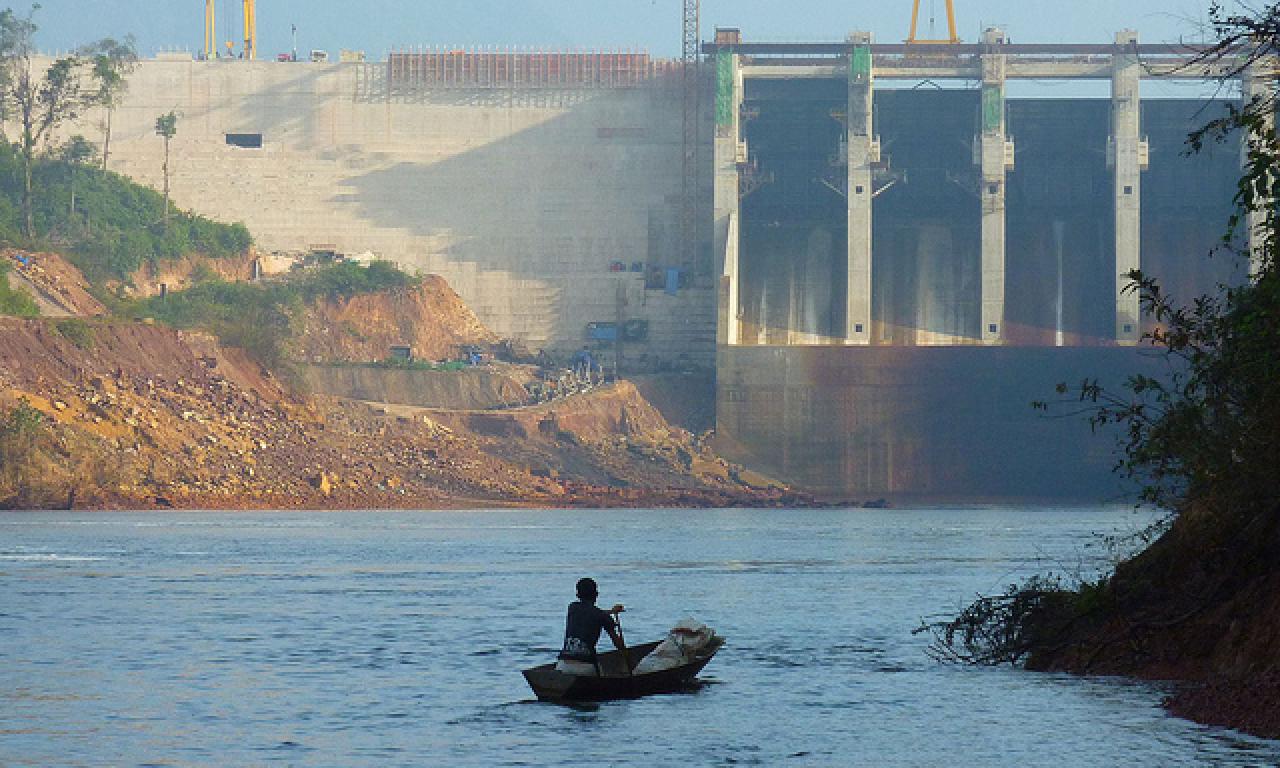
Eric Baran guest blogs about the increasing competition between hydropower and fisheries in the Mekong Basin, a WorldFish focus country. The Mekong River is a goldmine. It features the world’s largest inland fishery, producing around 2.1 million tonnes of fish each year, which represents about 18% of the world’s annual freshwater fish catch.
Recommended publications
- Fish migration, dams, and loss of ecosystem services in the Mekong Basin
- How much of the Mekong fish catch is at risk from mainstream dam development?
Eric Baran guest blogs about the increasing competition between hydropower and fisheries in the Mekong Basin, a WorldFish focus country.
The Mekong River is a goldmine. It features the world’s largest inland fishery, producing around 2.1 million tonnes of fish each year, which represents about 18% of the world’s annual freshwater fish catch.
Laos, Thailand, Cambodia and Vietnam hold the four world records for freshwater fish consumption per person, and fish is the second food item consumed after rice in Cambodia and Laos. Capture fish is essential to food security in the latter countries where the livestock and aquaculture sectors are not developed. Mekong fisheries are also important to the economy of the basin, netting each year between USD $4 - $7 billion on retail markets and substantially contributing to employment in the four countries.(download below)
Meanwhile, power demand is expected to grow at 6‐7 percent annually, and the region has ambitious hydropower development projects, with 16 dams built in 2000, 47 in 2015, and plans for 77 to 88 dams by 2013. However, these dams, if all constructed, will have a significant impact on fish production, since "40% of the Mekong fish biomass is made of long distance migratory fishes"(Download Below): these fish need to move seasonally between downstream floodplains where they feed and upstream tributaries where they breed. The annual loss in migratory fish expected from such dam development corresponds to the annual freshwater fish production of 15 West African countries.
So far, fisheries research has focused on documenting the nature and scale of the fish resource, and its importance to the people of the Mekong. The competing needs for both power and food security now call for innovative approaches in terms of avoidance and mitigation. The priorities for fisheries research are to identify rivers and sub-basins of critical importance, to locate major fish breeding sites and protect them by leaving some migration corridors open, to "identify hydropower projects having the least impact"(Download Below) and to propose mitigation measures wherever possible, in particular fish passes designed for Mekong species.
These should be complemented with the development of an aquaculture sector based on native species and accessible to the poor, and with fish-friendly management options in the rice fields of the Basin.
It is not often that we can contribute to the sustainability of a gold mine!
